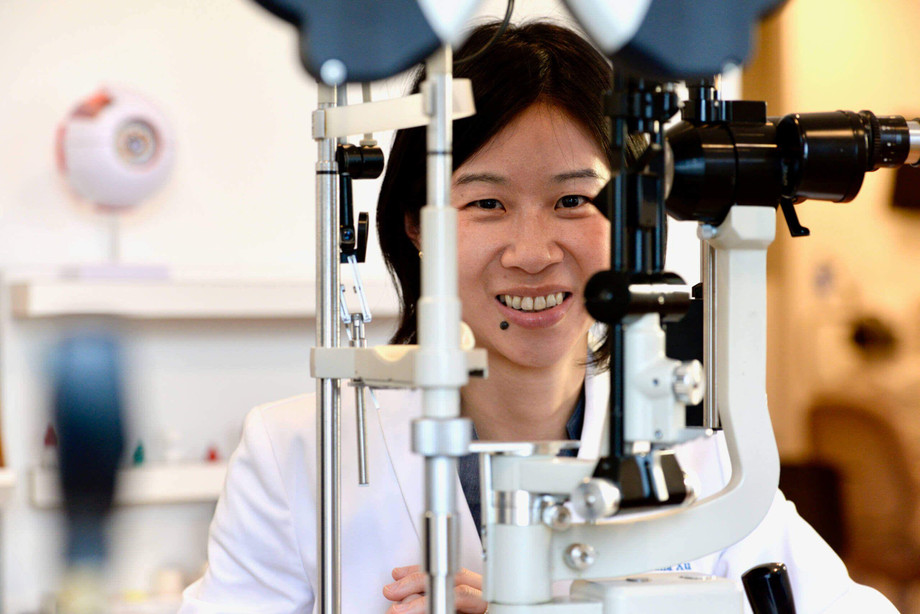Dry eye syndrome, a common and often uncomfortable eye condition, affects millions of people worldwide. If you're among those experiencing dry, irritated, and red eyes, it's essential to seek professional help. Finding the best dry eye doctor can make a significant difference in your comfort and overall eye health. In this article, we'll guide you through the process of choosing the right dry eye specialist and explore why their expertise matters.
Understanding Dry Eye Syndrome
Before we delve into finding the best dry eye doctor, let's briefly understand dry eye syndrome. This condition occurs when your eyes don't produce enough tears or when the quality of your tears is compromised. Common symptoms include:
Dryness: A persistent feeling of dryness or grittiness in your eyes.
Redness: Bloodshot or red eyes due to irritation.
Itching: Frequent itching or burning sensations.
Blurry Vision: Fluctuations in vision clarity.
Sensitivity: Increased sensitivity to light (photophobia).
Discomfort: A feeling of something foreign in your eye.
The Importance of a Dry Eye Specialist
While general ophthalmologists and optometrists can diagnose and treat dry eye, a dry eye specialist, often referred to as an "ocular surface disease specialist," has advanced training and expertise in managing complex and severe cases of dry eye syndrome. Here's why consulting a specialist is beneficial:
Expertise: Dry eye specialists have a deep understanding of the intricate mechanisms of tear production and the complexities of the ocular surface. They can provide targeted treatments tailored to your specific needs.
Advanced Diagnostic Tools: Specialists have access to advanced diagnostic tools and tests that can pinpoint the underlying causes of your dry eye, allowing for more precise treatment.
Comprehensive Treatment Options: Dry eye specialists are well-versed in a wide range of treatment modalities, including prescription medications, in-office procedures, and lifestyle modifications, ensuring you receive the most effective care.
Continuous Care: Chronic dry eye often requires ongoing management and adjustments to treatment plans. Dry eye specialists are equipped to provide long-term care and monitor your progress.
How to Choose the Best Dry Eye Doctor
Finding the best dry eye doctor for your needs involves careful consideration of several factors:
Credentials: Verify the doctor's credentials, including their medical degree and specialization in dry eye. Look for certifications from reputable organizations like the American Academy of Ophthalmology or the American Academy of Optometry.
Experience: Inquire about the doctor's experience in treating dry eye. Ask about the number of dry eye patients they have treated and their success rate.
Specialization: Ensure that the doctor specializes in dry eye and ocular surface disease. This specialization indicates a deeper understanding of the condition and its management.
Patient Reviews: Check online reviews and testimonials from patients who have received treatment from the doctor. Positive feedback can provide valuable insights into their expertise and bedside manner.
Referrals: Seek referrals from your general eye care provider or primary care physician. They may recommend a trusted dry eye specialist in your area.
Communication: During your initial consultation, assess the doctor's communication style. Are they attentive, empathetic, and willing to answer your questions? Effective communication is crucial in understanding your treatment plan.
Availability: Consider the doctor's availability and office location. Convenient access to your specialist can make regular appointments and follow-up care more manageable.
Technology and Equipment: Inquire about the technology and equipment available in the doctor's practice. Advanced diagnostic tools can aid in accurate assessments.
Your First Appointment
Once you've selected a dry eye specialist, your first appointment is a critical step in addressing your dry eye symptoms. Here's what to expect:
Medical History: The specialist will review your medical history, including any previous eye conditions, allergies, medications, and lifestyle factors that may contribute to dry eye.
Comprehensive Eye Examination: You'll undergo a thorough eye examination, which may include tests to assess tear production, tear quality, and the health of your cornea and conjunctiva.
Personalized Treatment Plan: Based on the examination findings, the doctor will create a personalized treatment plan tailored to your specific condition. This plan may include prescription eye drops, lifestyle modifications, or in-office procedures.
Education: Your dry eye specialist will educate you about the causes of your condition, treatment options, and self-care practices to manage dry eye symptoms effectively.
Follow-Up Care: Expect regular follow-up appointments to monitor your progress and make necessary adjustments to your treatment plan.
For More Info:-
ophthalmologist in staten island
best eye doctor in staten island




.png)

Comments